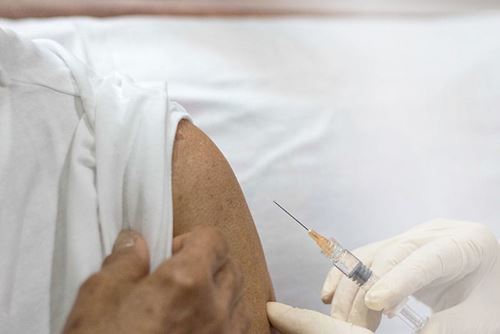Shingles vaccine may also reduce risk of stroke for some

One type of shingles vaccination may also prevent stroke in some older adults, according to research that found Zoster Vaccine Live lowered the risk of clot-caused ischemic strokes by about 18% and hemorrhagic, or bleeding, strokes by about 12%.
The beneficial effects of the vaccine varied by age, the study found, reducing stroke risk by nearly 20% among those younger than 80 compared with about 10% for those 80 and older. The protection was strongest among people ages 66 to 79.
Almost all Americans who are at least 40 years old carry the dormant chickenpox virus, also known as the varicella-zoster virus. Shingles is a reactivation of the chicken pox virus and typically occurs after age 50. The risk of developing shingles, which causes skin blisters and can have serious complications, increases with age and other health conditions.
Shingles can increase risk for stroke, potentially because of inflammation caused by the virus, said Quanhe Yang, the study's lead researcher and a senior scientist at the Centers for Disease Control and Prevention.
Yang and his colleagues reviewed the Medicare health records of more than 1 million people 66 or older who received the Zoster Vaccine Live between 2008 and 2014 and 1 million people of the same age who hadn't gotten vaccinated. Researchers took age, gender, race, medications and existing health conditions into account.
Yang hopes the positive findings encourage more people to get the vaccine.
"Approximately 1 million people in the United States get shingles each year, yet there is a vaccine to help prevent it," he said. "Our study results may encourage people ages 50 and older to follow the recommendation and get vaccinated against shingles. You are reducing the risk of shingles, and at the same time you may be reducing your risk of stroke."





